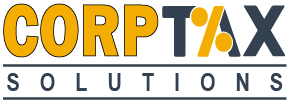Understanding the Key Amendments to the Income Tax Ordinance, 2001 (Finance Act, 2025)
Things Pakistani taxpayers need to know this year
Every year, Pakistan’s federal budget introduces new tax laws, modifications, and regulations to meet the country’s evolving economic needs. This also holds true for the 2025 Finance Act. It amends the Income Tax Ordinance, 2001 in a number of significant ways that immediately impact individuals, companies, associations of people (AOPs), independent contractors, and exporters.
If you are a tax consultant, business owner, or salaried employee, it is not only prudent but also essential to understand these changes. Let’s make the primary ideas of the 2025 amendments more approachable and straightforward.
- Redefining the Filers and Non-Filers categories
Perhaps the biggest change brought about by the “Non-Filer” category’s removal is the Finance Act 2025, but don’t celebrate just yet.
Starting July 1, 2025, the Federal Board of Revenue (FBR) will officially recognize only two categories:
• Eligible Persons
• Ineligible Persons
This doesn’t mean you can ignore your tax responsibilities. In fact, if you’re still not on the Active Taxpayers List (ATL) by June 30, 2025, you may be classified as ineligible for routine financial transactions like:
• Purchasing property or vehicles
• Registering a new company
• Opening a business bank account
• Participating in government contracts
This move is designed to push more people into the tax net and reward those who’ve consistently filed their returns on time.
Bottom line: Want to stay “eligible”? File your returns before June 30 every year.
- Revised Salaried Individual Tax Slabs
The tax slabs for salaried individuals have also changed as a result of the Finance Act of 2025. Higher income groups will now pay a little more than they did the previous year, even though the basic exemption limit of Rs. 600,000 per year stays the same.
Example:
If you’re earning Rs. 3 million annually, your monthly tax liability may have increased due to a minor upward revision in tax rates in the middle and upper slabs.
Why it matters: Confirm that the source tax deductions made by your employer correspond to the most recent rates for 2025–2026.
- Prolonged Tax Benefits for Exporters of IT and IT-Enabled Services
For Pakistan’s quickly growing technology sector, there is good news.
The 0.25% lower tax rate on IT and ITeS export revenue will be in place until June 30, 2036, but only if you have filed full yearly tax returns with income reconciliation and are listed on the FBR Active Taxpayers List.
Avoid relying exclusively on bank credit records. Make sure your tax returns accurately reflect your export revenue in order to keep this benefit.
- Changes to Withholding Taxes: Increased Rates for Eligible Individuals
Withholding taxes are now more stringent. If you’re not on the ATL:
• You’ll face higher withholding tax rates on banking transactions, vehicle registration, property sales and purchases, utility bills, etc.
• Financial institutions and NADRA are now integrated with FBR, so cross-verification is automated.
Avoid these issues by simply filing your return and keeping your name on the ATL.
- Sales Tax Filers Must Verify Their Biometric Information
A new yearly requirement has been implemented under SRO 350(I)/2024: every July, all individuals and businesses registered for sales tax must complete biometric verification at approved E-Sahulat centers.
Documents needed: Original CNIC, NTN certificate, and proof of sales tax registration
The due date is July 31, 2025.
If you don’t verify, your case might be blocked and sent for Commissioner-level approval, which could result in unnecessary delays.
- Digital Integration & Documentation
The 2025 amendments place a high priority on digital integration and traceability. Here are a few examples:
• CNICs are now required for all major sales and purchases.
• Bank transactions and Point-of-Sale (POS) data must be reconciled with revenue for businesses.
• Inward remittance data from banks is used to track freelancers who receive foreign remittances.
Pro Tip: Use IRIS Portal to keep your profile updated and submit your declarations on time.
- Real Estate Transaction Tax
The government is still working to compile information about the real estate industry. An original CNIC, an NTN certificate, and documentation attesting to sales tax registration are required.
The deadline is July 31, 2025.
If you don’t verify, your case might be blocked and sent for Commissioner-level approval, which could lead to unnecessary delays.
- Support for Widows, the Elderly, and Pensioners
To help vulnerable communities, the Finance Act of 2025 has:
• Exempted pensioners from paying taxes up to certain limits.
• Senior citizens (those over 60) earning less than Rs. 1 million were eligible for tax credits.
• If registered and in compliance, widows operating small businesses may be eligible for special startup tax credits.
- Updated Audit Risk & Penalties
The FBR has strengthened its audit triggers and imposed harsher penalties on the following:
• Failure to disclose business branches or bank accounts
• Late or nonexistent tax return filing
• False income reporting, especially by independent contractors and internet sellers
Concealment is now even riskier with the addition of AI-based filters to random selection.
- Final Thoughts: Prompt Actions
The Finance Act of 2025 aims to reward compliance, digitize traceability, and ensure document compliance.
Here is your checklist, regardless of whether you are an employee, freelancer, student, or business owner:
- The deadline for filing taxes is June 30, 2025.
- Update your information in the IRIS system.
- If you file sales taxes, have your biometrics verified.
- If you’re unclear of your category, speak with a tax advisor.
Do You Need Assistance Managing These Changes?
Thousands of Pakistanis have benefited from Corptax Solutions’ assistance in becoming compliant, reducing taxes, and avoiding fines.
Go to corptaxsolution.com.
Or send us a direct message to begin your journey toward tax compliance.
Let the experts handle it so you can focus on what you do best—growing your business or career.
